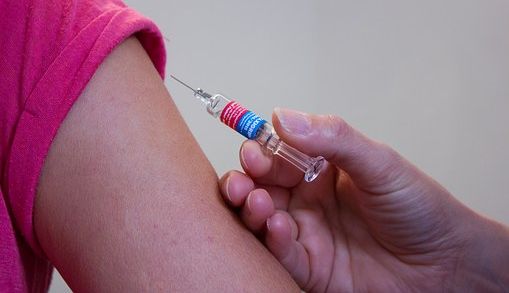Vaccinations
Vaccinations
We provide a variety of vaccinations whether it is for travel or prevention such as shingles or tetanus.
We provide a variety of vaccinations whether it is for travel or prevention such as shingles or tetanus. Contact us today to Book an Appointment!
At iCare Pharmacy we provide a variety of vaccinations, such as for travel as well as for immunizations against potential diseases.
Why is it important to get Vaccinated?

How does a Vaccination work?
What are the side effects you can experience from a vaccine?
The most common side effect with a vaccination is that you may experience some redness and irritation at the site of injection. There is a risk of a allergic reaction to the vaccine depending on your medical history.
If you have any history of allergies you should notify your pharmacists so they can ensure that the immunization you receive will not trigger an allergic reaction.
There are some misconceptions in regards to some vaccines such as the Flu shot. The Flu shot for example some people believe may actually cause the Flu. The vaccine that is commonly given for the Flu shot is inactivated (killed) and as such is not infectious.
In certain cases where they do use a live vaccine, such as the nasal spray, they use a very small portion of the bacteria or virus and as such it is not capable of actually causing you to have the flu.
In some cases patients will develop a fever after being injected with the Flu shot. The fever in this case is not a sign of the Flu but is actually your body’s attempt to memorize and ready itself if it does ever get exposed to the Flu virus. A natural mechanism of your body against the Flu is to raise the temperature of your body so it is an uncomfortable environment for viruses and bacteria.
So your body has raised its own temperature as result of the vaccine but you do not actually have the flu. This fever is usually temporary and should dissipate shortly.
Frequently Asked Questions !
Some of the immunizations we provide at our pharmacy include:
Tetanus Vaccination | Td
Diphtheria Vaccination | Td
Shingles Vaccination | Shingrix
Influenza Vaccination | Flu Vaccine
Influenza is a viral infection that is also known more commonly the Flu is a respiratory infection that affects the nose, throat and lungs. It is transmitted from person to person through droplets when patients talk, sneeze or cough.
The influenza virus is good at mutating itself from year to year which is why you need to get the flu vaccine yearly. Scientists are able to predict what the Flu virus looks like year from year and based on this they are able to make a vaccination to protect us against the influenza virus.
Hepatitis A Vaccination | Havrix
Hepatitis B Vaccination | Engerix B
Japanese Encephalitis Vaccination | Ixiaro
Pertussis Vaccination (Whooping Cough) | Dtap
Measles Vaccination | MMR II
Meningococcal Vaccination | MenACWY/MenB
Pneumonia Vaccination | Prevnar 12 | Pneumovax 23
Pneumonia is a respiratory infection that results in the inflammation of a patient’s lungs air sacs filling with mucus and pus. Pneumonia can also be caused by viral and fungal infections but bacterial is the most common cause of Pneumonia infections.
There are certain groups that are more at risk of a Pneumonia and as a result it is important for these patients to be vaccinated. High risk patients include patients older than 65 years old, Children younger than 2, smokers as well as diabetic and Asthma patients.
Traveller’s Diarrhea | Dukoral
Typhoid Fever | Vivotif | Typhim
Typhoid is a disease that commonly presents with fever, headache, abdominal pain and constipation or diarrhea. It is caused by the bacteria known as Salmonella Typhi. You can take Vivotif as an oral vaccination that acts as a preventative against Typhoid fever.
Another alternative is to take Typhim which is an injectable vaccination. Typhoid is most commonly spread through contaminated food and water and is usually a result of trace fecal matter.
